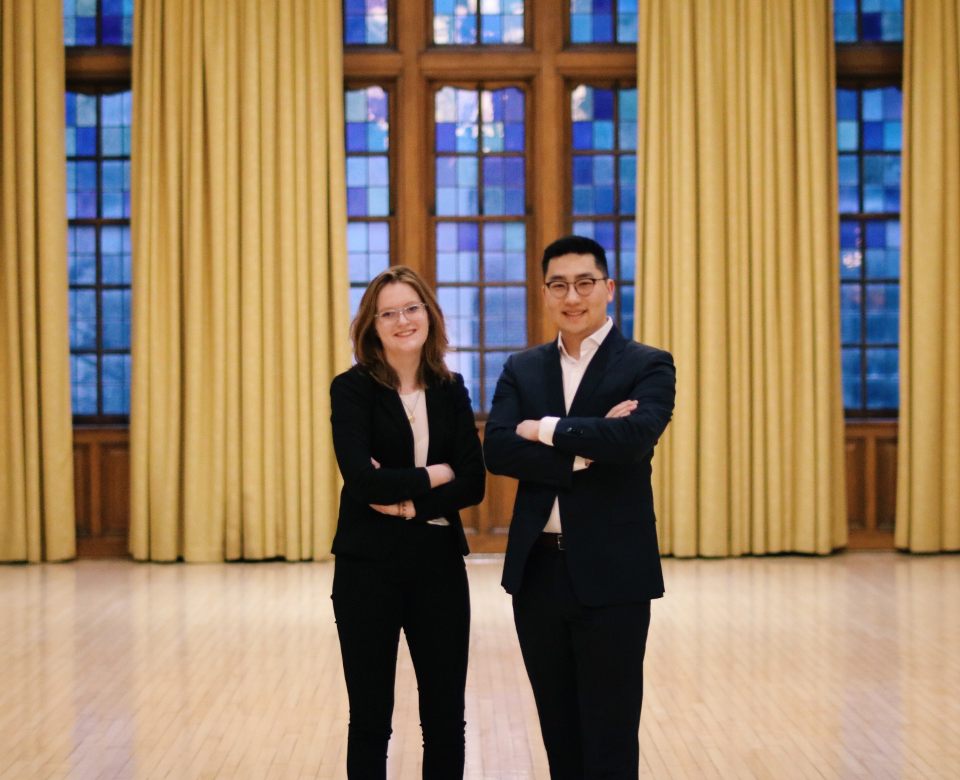For the first time in nearly seven years, the election for LSA Student Government President and Vice President is contested. Throughout my time at the University of Michigan, our student body has struggled to care about student government elections. For Central Student Government elections last year, only 23.9 percent voted, which was an increase from 17.9 percent the previous year. For LSA Student Government last year, turnout was a dismal 13 percent of LSA students. This results in a voting population that is not representative of the campus but rather representative of people who either know about LSA Student Government or have friends in it who are running. Why then, should we take these candidates seriously? How can their policies affect change that is truly meaningful?
For LSA Student Government candidates Brian Wang and Mary McKillop, these elections should matter to everyone. “This election is for everyone, not just people who know about student government.” Brian Wang, a Junior studying Political Science and Economics and serves as the current Student Life Relations Officer, felt it was an extension of his leadership in Student Government. “We want to push for ideas that we think help students on campus the most.”
Mary McKillop, a sophomore studying Political Science and American Culture, feels that her time in the appointments committee gave her the confidence to run, commenting that she wants to “take LSA Student Government to the next level of what it can be,” and advocate for students.
The major theme for their campaign focuses on accessibility and making life “easier for students to navigate” at Michigan. “We have students from all kinds of backgrounds” Brian explained and it is their job to make the university more open and transparent for everyone involved.
Their platform attempts to get at this problem in a few ways, starting with fixed-rate tuition. This system would allow all students to pay the same tuition for four years. The tuition could be changed from class to class, but once a tuition rate is decided upon, that rate is what gets paid for four years. “For me personally, the tuition hike [this year] was a bit unexpected,” Mary commented, and, “this would help people know what they are signing up for when coming.” They would like to see it implemented for all students or as an opt-in option that is the average cost of four years of tuition.
They also delved into divestment and said that they wanted “ensure that LSA SG is adequately educated on the topic” before discussing anything further.
They talked about overhauling the Counseling and Psychological Services, commonly known as CAPS. They believe CAPS struggles with funding despite additional counselors and changes made with other campaigns on campus. Brian explained that even with those changes it is still “heartbreaking to hear when students visit CAPS regularly and are told they are limited to one visit a month.” Despite these changes, people have to wait for non-emergency visits and have to physically go to the central campus location to receive treatment. “We obviously want more counselors, but we also want to make sure that it is accessible when needed.” They want to add a North Campus office and increase awareness for this resource in addition to adding more counselors. “We have a surplus every year, and [we] want to give that money to CAPS to make sure the University takes this seriously.”
Brian and Mary also talked about releasing more Course Evaluations data for students, which would help students “find the professor that best fits their needs.” They also discussed IM equipment rentals and iClicker rentals, to help students have more access to IM sports and class materials.
You can view their platform and vote for Brian and Mary and any of the other candidates here.
